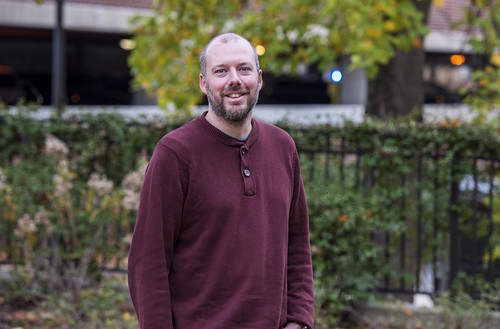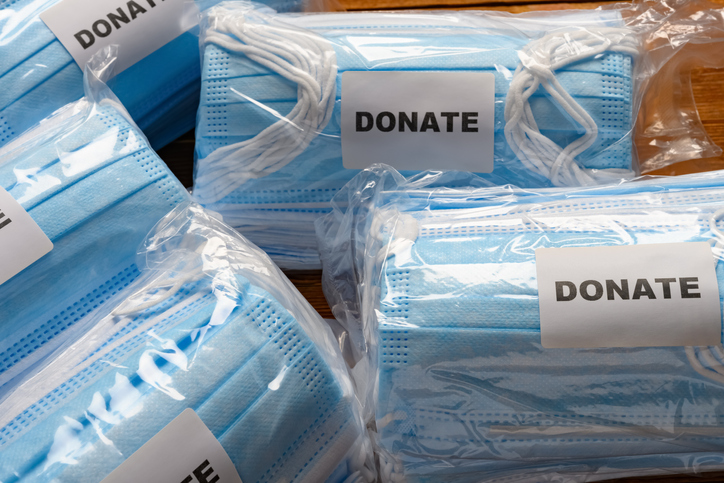Auburn professor comments on philanthropic impact of COVID-19 relief efforts
Article body
Peter Weber teaches in Auburn’s philanthropy and nonprofit studies program, which helps students identify their philanthropic priorities and be strategic in their philanthropy. Weber shares his expertise in this crucial time of giving and comments on how philanthropic work benefits COVID-19 relief.
What can we learn from international responses?
I grew up in Italy, where my parents still live, so I have been watching closely what is happening in one of the countries hardest hit by the pandemic. Philanthropy has been at the frontline of the response to the pandemic. This response has involved individuals, such as the Agnelli family (owner of Fiat company) and Silvio Berlusconi (the controversial TV magnate and former prime minister), who have donated millions of euro to local hospitals and health agencies. Likewise, private entities mobilized resources, including the Intesa-San Paolo bank, which donated 100 million euro to Italy’s efforts to fight the pandemic and allocated up to 5 billion euro in loans to companies affected by the crisis. And last but not least, philanthropic foundations have directed funds not only to hospitals and health care companies, but also to nonprofit and cultural organizations struggling amidst the economic crisis caused by the pandemic.
Describe the philanthropic response to the COVID-19 crisis in the United States.
Like in Italy, both individual and organized philanthropy have responded to the health, economic and social emergency before state and federal government could mobilize and organize a coordinated response.
Individuals have made substantial donations supporting the health agencies overwhelmed by the emergency, as businessman Tim Cook, for example, donated masks to health care workers in Alabama. Musicians such as John Legend, under the #TogetherAtHome Concert Series, streamed live for the Twitch Stream Aid 2020 to raise funds for the World Health Organization’s COVID-19 Solidarity Response Fund, an event reminiscent of the 1985 Live Aid concert. I think the impact of this “donation of talents” goes well beyond their overt fundraising purpose because the concerts provide a needed moment of solace in a time of social isolation.
U.S. philanthropic foundations also leveraged their substantial resources to address both immediate needs and long-term goals. Some foundations, like North Carolina’s Mary Reynolds Babcock Foundation, stepped in to support local nonprofit agencies struggling to maintain the same level of services, while others such as the many community foundations that exist in the United States have set up emergency relief funds in counties across the United States. At the same time, organized philanthropy is mobilizing resources for research and development, with for instance, the Bill and Melinda Gates Foundation committing $60 million of its overall $100 million effort to the discovery of a new vaccine. This is in line with the traditional understanding of philanthropy’s role in society, which focuses on addressing the roots of existing problems, beyond the narrow focus on curing the symptoms.
These philanthropic efforts are not exceptions but rather symbolic of the broader philanthropic response. Candid, a nonprofit organization collecting and sharing information and research on the nonprofit sector, estimates the worldwide philanthropic response to the pandemic is close to $3 billion worldwide. These funds support research, medical support services, disaster relief and emergency medical services.
What is the potential of philanthropic giving regarding COVID-19?
Organized philanthropy works best when leveraging its ability to move quickly and when investing resources in experimentation and innovations. Because of its relative independence, philanthropy can search for and develop new innovative approaches without having to expect immediate results. Philanthropy can test new solutions to social problems, solutions that then can be implemented and brought to scale by government agencies. Social change and innovation are slow processes and through its capacity to fund innovation philanthropy is, in Paul Ylvisaker’s words, society’s “passing gear.”
At an individual level, philanthropy plays a perhaps even more crucial role. Philanthropy brings us together and allows us to work collaboratively with others on key social problems, large and small. In an era of social distancing, this “virtual” cooperating plays a crucial role as it maintains and strengthens the ties that make up America’s social fabric. The efforts in my neighborhood, for example, to coordinate grocery trips and providing mutual support and help are good examples of philanthropy as small acts of kindness that strengthen community ties.
What are the limits of philanthropy?
Philanthropy is not a substitute to public action, rather it complements public action. Philanthropy has the capacity to mobilize quickly, before the full power and scale of government agencies can. Quickness, innovation and understanding of local needs are key advantages of the philanthropic sector. In the early phase of a crisis, philanthropy is best positioned to provide a quick and effective response because it is not slowed downed by the massive bureaucracies of state agencies, is not held accountable to political and electoral rationales, and is not driven by market/profit forces. Philanthropy can therefore act swiftly to address societal needs in times of emergency. However, even the close to $3 billion worldwide philanthropic response is dwarfed by the $2 trillion bipartisan economic relief plan signed by President Trump on March 28. While philanthropy is a significant economic and social force in the United States, it cannot mobilize the same amount of human and financial resources that the federal government can.
If an individual wants to give or join a philanthropic effort right now, what advice would you have for them? What are some good resources they could use?
Today, social distancing is an immediate way we can individually contribute to the common good. It is a philanthropic act in that it requires a renouncing of our usual habits and self-interest for the greater good. This balancing between individual interest and concern for the common good is intrinsically a philanthropic question because it is through philanthropy that we, as individuals, participate through private actions in public discourses and contribute to the common good.
Individuals have multiple opportunities to contribute to the fight against the pandemic. The Center for Disaster Philanthropy, for instance, has compiled a good list of objectives for strategic giving, including contributions to relief funds, local nonprofits, medical needs, mental health and vulnerable populations.
Additional resources to consider are Candid’s website, which lists emergency funds set up by various U.S. philanthropic foundations, as well as the website Charity Navigator, a nonprofit watchdog that ranks and evaluates nonprofit organizations’ effectiveness and efficiency.
About Peter Weber
Peter Weber is an assistant professor of philanthropy and nonprofit studies in the College of Human Sciences at Auburn. His work focuses on how individuals contribute to the common good through philanthropy, including the giving of treasure (donations), time (volunteering) and talent (expertise). Weber earned a doctorate in philanthropic studies from the Lilly Family School of Philanthropy at Indiana University. He joined the Auburn faculty in 2019.
Auburn University is a nationally ranked land grant institution recognized for its commitment to world-class scholarship, interdisciplinary research with an elite, top-tier Carnegie R1 classification, life-changing outreach with Carnegie’s Community Engagement designation and an undergraduate education experience second to none. Auburn is home to more than 30,000 students, and its faculty and research partners collaborate to develop and deliver meaningful scholarship, science and technology-based advancements that meet pressing regional, national and global needs. Auburn’s commitment to active student engagement, professional success and public/private partnership drives a growing reputation for outreach and extension that delivers broad economic, health and societal impact.






